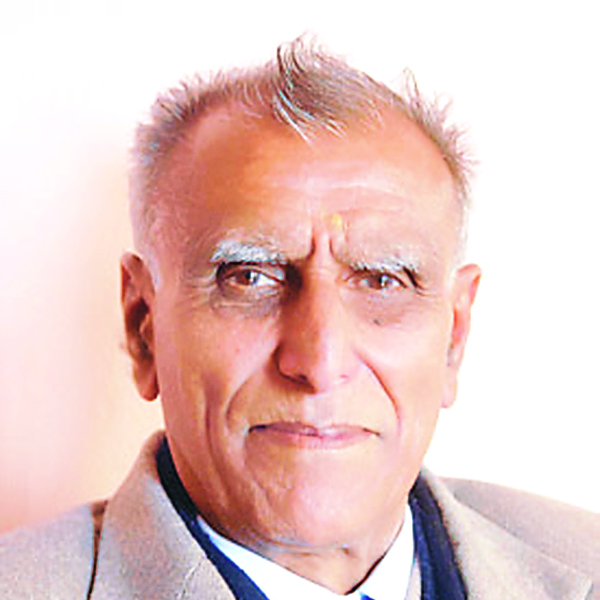Opinion
On a global stage
At the 69th UNGA, PM Koirala stressed peace, stability, and democracy as Nepal’s gateways to prosperity
Ram Chandra Pokhrel
While addressing the 69th United Nations General Assembly (UNGA) on September 26 in New York, Prime Minister Sushil Koirala stressed that the country’s unwavering faith in a democratic system of governance was the source of strength that brought about peace and historic political changes in the country.
In his address before the distinguished presence of the heads of state and government from across the world, PM Koirala highlighted the success stories of bringing the Maoist rebels into the mainstream democratic process and of transitioning from an autocratic monarchy to a republic. Koirala also mentioned that the political parties, including the Maoists within and outside the Constituent Assembly (CA), were all on the path of peace, stability, and development.
Koirala emphasised the promotion of peace and disarmament through dialogues, and wished to see an enlarged role of the UN Regional Centre for Peace and Disarmament based in Kathmandu. He urged nations to step up ‘political and diplomatic means’ to address the root causes of conflicts around the world. His concern was over the “growing scourge of terrorism , extremism, and religious fundamentalism”.
Dignified closure
The great historic change in Nepal that dawned in 2006 was the final phase of a 55-year long struggle that began with the 1951 rebellion against the century-old Rana regime and continued against the king’s autocracy until 1990 and later, in 2002-2006. The country finally managed to restore democracy and achieved two other great goals—abolishment of the monarchy and an end to the decade-long armed conflict.
During the peace process, the United Nations Mission in Nepal successfully mediated to resolve arms management, integration of Maoists combatants into the Nepal Army, and the rehabilitation of other rebel fighters. The peace process, which started with the 12-point understanding with the Maoists, proceeded to the the signing of the Comprehensive Peace Agreement (CPA) between the government and the Maoists.
Against this background, at the UN Assembly, PM Koirala evoked the vision of the late BP Koirala, who had addressed the 15th General Assembly in 1960. On behalf of the first-ever elected government, the late leader had said, “The real solutions to the world problems , including world peace and prosperity, lie in the direction of strengthening and extending the authority of the United Nations.” BP’s words, presented half a century ago, still command high importance and relevance. In those days, the late leader’s speech was acclaimed by world leaders. The authority of the UN, as he put it, would be “stregthened and fortified if decisions of the United Nations were respected faithfully and loyally by all powers, big and small.”
A multi-polar world
The 1960s was the era of the Cold War. The world was divided into two, one led by the Soviet Union and the other by the United States. Neutral nations, mostly democracies, were members of the Non-Aligned Movement. All the world leaders who attended the 15th General Assembly are no longer today. Neither are leaders from that generation alive in Nepal. This time, when PM Sushil led the Nepali delegation to the UN , a multi-polar world exists. Both our immediate neighbours—India and China—are world economic powerhouses. During the Cold War era, the People’s Republic of China had not been admitted to the committee of nations—the UN. Nepal was one of the few nations that advocated strongly for the inclusion of its northern neighbour.
Inspired by the contemporary world, its rapid economic progress, and sophisticated technological developments at an unimaginable pace, PM Koirala’s speech at the 69th General Assembly seems to be clearly motivated by a desire to see the rapid development of his own nation, which aims to graduate from Least Developed Country status by 2022. The world has now changed, as acknowledged PM Koirala, into an “unprecedented level of interdependence and interconnectedness.” This has in turn changed the dynamics of engagement between and among nations. “The two powerful ancient civilisations, India and China, which are growing rapidly, have immense opportunities to benefit Nepal,” said Koirala. The prime minister stressed that “peace, stability and democracy in Nepal” would not only pave the way for reaping benefits from “economic dynamism in the neighborhood” but would also act “as a stabilising force for peace and prosperity in Asia and the world at large.”
Pokhrel is former chief secretary of the Nepali Congress




 24.89°C Kathmandu
24.89°C Kathmandu











